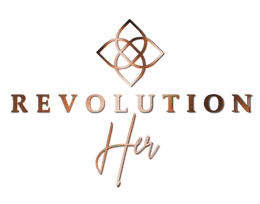Collagen is a well-known benefit to keeping your skin healthy and glowing – but what exactly is it, where does it come from, and how can you use it? We’ve rounded up 4 key elements you need to know for this popular beauty trend:
Collagen & It’s Role
Collagen is the most important and abundant protein in your body – it’s like a kind of glue that holds your body together. Everything from our hair, nails, skin, gut barrier, connective tissue, cartilage, joints, and bones all depend on collagen to be healthy, flexible and strong.
Benefits of Adding Collagen to Your Diet
As we age, our bodies produce less collagen naturally, beginning in our thirties and forties. Adding collagen peptides to your diet can help to support healthy skin, nails, hair, muscles and joints – as well as boost your hydration.
Types of Collagen
There are 4 main types of collagen, and a variety of sources:
- Type I accounts for 90% of your body’s collagen and is made of densely packed fibers. It provides structure to skin, bones, tendons, fibrous cartilage, connective tissue, and teeth.
- Type II is made of more loosely packed fibers and found in elastic cartilage, which cushions your joints.
- Type III supports the structure of muscles, organs, and arteries.
- Type IV helps with filtration and is found in the layers of your skin.
Collagen is found in the connective tissues of animals such as fish, chicken and pork skin:
Marine Collagen (from the skin of fish)
Bovine Collagen (from beef)
Porcine Collagen (from pork)
Chicken Collagen
A particularly rich source is bone broth, which is made by boiling the bones of animals.
Collagen For Vegans & Vegetarians
If you’re vegetarian and you’re looking for a plant-based alternative to collagen protein, there are lots of easy, nutritious, and delicious foods you can eat that will naturally boost your collagen production and help support and maintain the collagen you’ve already got in your system. Collagen can also now be made by using genetically modified yeast and bacteria. The ability to make inexpensive, safe collagen sourced from microbes instead of animals has many promising applications for human health.
Natural plant-based sources collagen include:
- Leafy Greens
- Tofu and Tempeh
- Pumpkin Seeds
- Green Tea
- Sesame Seeds
- Whole Grains
- Citrus Fruits
- Beans
- Broccoli
- Lentils
Adding More Collagen To Your Diet
Collagen peptide often comes in a powder format, or in a liquid format, for easy consumption. You can add to smoothies or even soups to boost your nutritional intake. If you wish to look at supplement options, be sure and look for a high quality source. Our faves include:
Niyama Wellness Glow & Flow Vegan Collagen Booster
This delicious juice powder is formulated with three key vegan sourced amino acids required in the collagen building process: l-glycine, l-lysine, and l-proline. Vitamin C, an antioxidant and cofactor required for the hydroxylation of both l-proline and l-lysine. Finally, the formula is balanced out with a dose of hyaluronic acid, marine trace minerals and biotin for maximum collagen production.
Beauty Me Himalayan Sea Salt 4X Better Chocolates
An incredible recipe of real dark chocolate and milk chocolate with 0g of Sugar Added, infused with 30mcg of Biotin, 150mg of Vitamin C, 800iu of Vitamin D, 15mg of Vitamin mg 6mg of Zinc and 1.6g of MCT oil which helps with the absorption of the fat soluble nutrients. These delicious bites are topped with sprinkles of sea salt and cacao nibs for a wonderful crunch!

